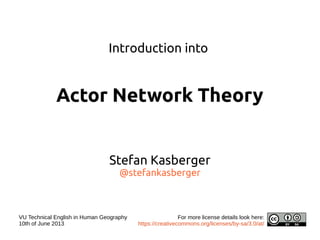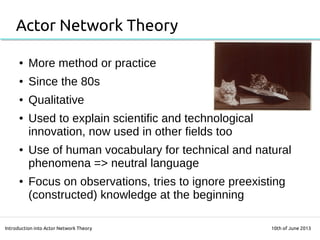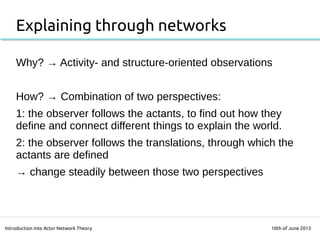This document introduces Actor-Network Theory (ANT), developed by Bruno Latour, which combines social constructionism with a focus on the relationships between human and non-human actors in society. It outlines ANT's methods for analyzing diverse networks and its applications in understanding scientific and technological innovations. The document also discusses criticisms of ANT and provides a case study on door closers to illustrate its principles.














